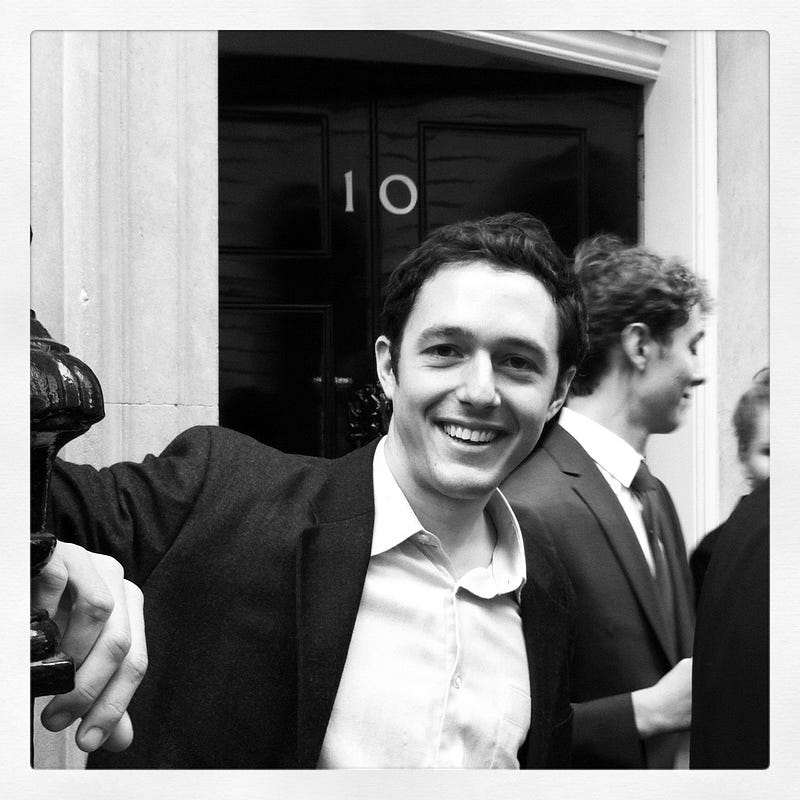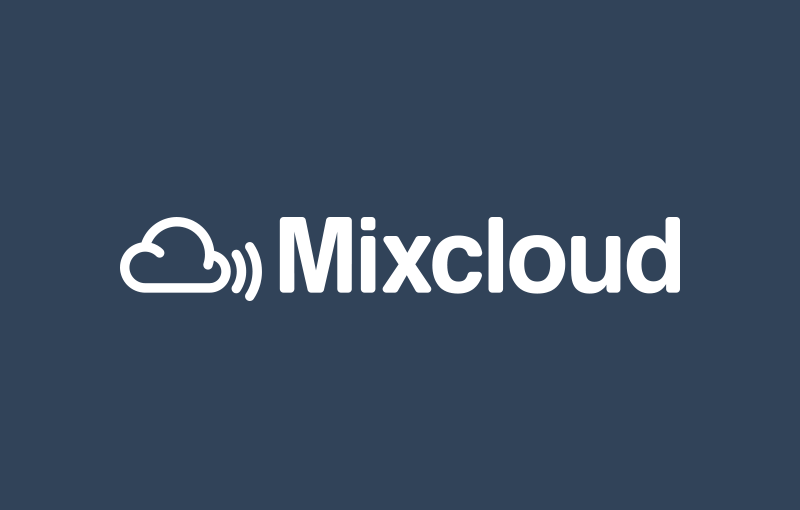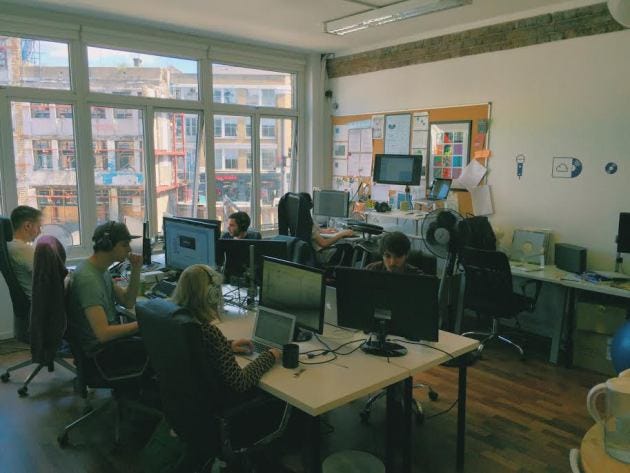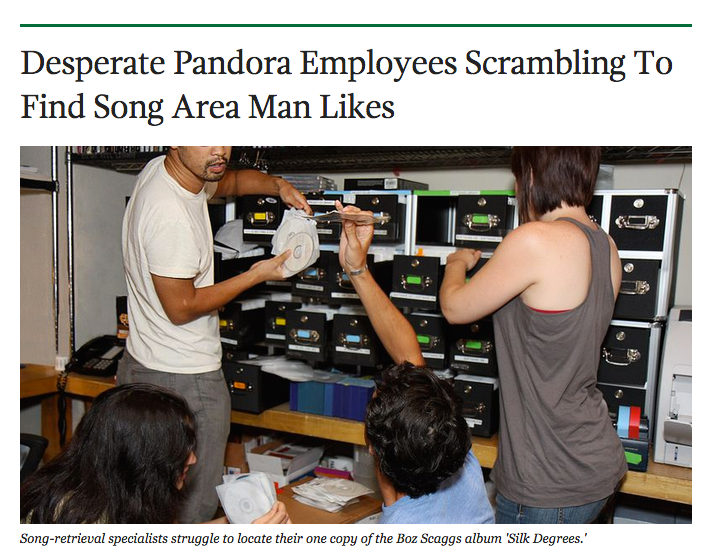Human Curation vs. Big Algorithm: An Interview with Mixcloud’s Nico Perez
Much has been discussed of late regarding music streaming, but while it's typically the big players who are most often talked about, like Spotify and Apple Music, it is the dark horse, Mixcloud, that should be paid attention to, as the popularity of human curated content is once again on the rise.
____________________________
Guest Post by Mike Pizzo on Medium
With streaming music being a hot button topic lately, users are quick to draw a line in the sand and swear allegiance to their corporation of choice. While Apple Music, Spotify, Soundcloud and others have each planted their flags in the soil, the unsung hero among them is Mixcloud, a small company that takes a slightly different approach. Specializing in user generated and professionally produced episodic content, the platform allows users to upload their own podcasts, DJ mixes, and radio shows, rather than offering a library of single track streams. With human curation coming back into fashion after Apple threw their hat into the ring, the seven year old Mixcloud boasts 8 million episodes from over 800,000 curators. Just how does one sift through all of that content? Cuepoint spoke to co-founder Nico Perez about that, what the future of digital music holds and the spectre of Big Algorithm.
Cuepoint: I’m wondering if you can first give us the backstory on how Mixcloud got started, for those that are unfamilar?
Mixcloud co-founder, Nico Perez
Nico Perez: Over ten years ago, myself and one of the other co-founders had a college radio show at Cambridge University in the UK. At that time, we played to a maximum of 14 or 15 people, but I think that’s where our love for radio and the power of curation first came from. When we graduated college, we were still DJing out a lot, playing parties, recording mixtapes and things like that. We were looking for somewhere to host these radio shows and mixtapes and everything. At that time — in the mid to late 2000s — your choices were basically YouSendIt, MegaUpload, and other file sharing sites. That was kind of the original genesis behind Mixcloud, to build a platform for radio presenters and DJs to post their shows online, so people could listen to them again after they’d been broadcasted. It kind of grew and grew and grew, and slowly we created a team as well. Now it’s 12 people based out of London, with over 800,000 DJs and radio presenters publishing on the platform, with over 12 million listeners per month. We’ve done quite a lot since the early days.
What would you say the overall mission statement is for Mixcloud?
Good question. What we talk about a lot is this idea of rethinking radio. Our pseduo-tagline, if you will, is “Inspiration for your ears.” Radio doesn’t necessarily have to be a live, linear stream. You can actually listen to your favorite radio presenter after they’ve done their show. We’re trying to make it more social, so you can share shows with your friends, and embed them on Facebook, Twitter and social network sites. We’re also trying to make it more democratic, so anybody can make a show and upload it to the platform, rather than having to be selected by the curator or programmer from Radio 1, NPR or any other stations. Those sort of values are core and key to us. The overall top level objectives are to rethink radio and build the best radio platform for the 21st century.

So, tell us what’s going on at Mixcloud lately.
We’ve just announced a few different things. One is the new mobile app for iOS and Android, and the second thing is the new Discovery feature, which allows users to piece together and essentially create their own radio station. There’s about 8 million shows currently. It’s a really powerful way to browse and search the whole catalog. The third thing we’ve been working on are these online radio awards. The winners were just announced and they ranged from small radio stations out of Morocco to well known household names.
I’m curious what’s going on with the new apps? I was using the iOS app for a while, so what are the main differences or improvements to the new versions?
Well, first off, we’ve got both iOS and Android up to the same standard. We released them at the same time, which we’d never done before. We’d always taken an “iOS first, Android second” approach, so we’re pretty excited and proud of that. As far as the main actual feature improvements, one is the ability to actually queue up different mixes and different shows. Before you could just play one, and then go and find the second, third and fourth one. You can now just have them queued, which is pretty sweet.
And then the really exciting thing that we’ve done — which is probably my favorite — is now we have the ability to sync between your desktop listening and your mobile listening. In other words, if you are listening to a show on your desktop and you have to run out and catch a cab for a meeting across town, if you open the mobile app, it will know exactly where you are and will allow you to continue listening from that point onwards. As far as I know, we are one of the only streaming platforms that does that.
What can you tell us about the build-your-own-radio-station “Discovery” tool?
We essentially have over 8 million radio shows, DJ mixes and podcasts uploaded to the platform, from over 800,000 curators. So it becomes a little bit of a question of how do you navigate that catalog? Where do you start, really? I think that this is a problem that a lot of different services have, whether it be Spotify or any of these other services. The new discovery tool allows you to plug in several search terms and filter throughout the whole database. For example, you could put in the search term “funk” and then “James Brown” and “New York City.” That would show you everybody from New York that has uploaded a mix or show that has James Brown and is tagged with “funk.” It’s a really powerful way of dissecting and cross-referencing the whole database. You can really get deep into the catalog of amazing stuff that’s on there.
In the eyes of rights holders, what separates a “mixtape” from a “podcast” and what are the rules legally as far as clearances?
At the end of the day, whether you call it a “mixtape,” a “podcast,” a “radio show” or a “DJ set,” it’s an extended piece of audio that is curated by a human. We actually came up with an umbrella term which we call a “cloudcast,” to describe these audio files that are hosted in the cloud, which you can stream from anywhere. The thing that would set a podcast apart is that you would actually download it to your phone. To do that legally is incredibly difficult, as you have to obtain clearances for all of the songs and clearances to download. That is something that we’ve steered away from, conducting the streaming model. Because of that, we got the licenses needed for streaming and we pay royalties to the artists listened to in the stream.
“Freedom of Information,” a Mixcloud cloudcast by the author and rapper Talib Kweli.
That was always interesting to me, because one of the differences between Soundcloud and Mixcloud was that Soundcloud would offer the download option, however with that you get the DCMA takedown notices. With that, I don’t think DJs making mixtapes are trying to bootleg music, I feel that they are trying to spread the word about music. It’s interesting that the little variable that separates what is acceptable and what isn’t is so thin.
I think that is something that has become more apparent during the last six to nine months or so, where more and more people have had their content taken down from Soundcloud. The reality of it is that the rights holders don’t necessarily agree with the promotional value approach, which is a debate that has been going on for ten plus years. Today in its present form, the rights holders are trying to pull back from free streaming and moving to monetizing subscription models.
How do you think that will affect Mixcloud in the future? Will you have to pay higher royalty rates?
That’s a good question. We’re slightly different in that we are a radio service and you can’t come to Mixcloud and select a song that you want to listen to and hit play, unlike the Spotifys and Soundclouds of the world. That said, a subscription service that would make sense could be of interest to us, it’s just question of working out the economics and make sure that they work for everybody. Something not too expensive, not the ten dollars you would pay per month for Spotify, because at the end of the day you’re not going to have access to 30 million songs on demand. It’s a different sort of service.

Inside the Mixcloud office
Let’s talk about human curation. This is obviously something Mixcloud has been dealing with for the past few years, and now it’s kind of coming back into fashion, as people are kind of turning against Big Algorithm.
We firmly believe in the value of human curation — meaning human DJs — at the end of the day. With Apple coming out with Apple Music and Beats 1 being front and center, we’ve definitely seen a whole lot of more interest in what we are doing, whether it be potential business partners, DJs themselves, or journalists taking an interest us. I think that’s a really good thing because it’s highlighting the importance of what a human may be really good at. Not to knock the Pandoras of this world too harshly, but humans are actually incredibly good at finding great new music and bringing that to other humans. I think the value of the DJ and what they can bring to the listening experience — above and beyond the blending tracks and making a seamless music experience — is bringing to the forefront new artists and music makers that perhaps you’ve never heard of. From our point of view, now is a time when we’re seeing that spotlight shone on curation. People have asked us about how we are competing with Apple, the biggest company in the world. It’s kind of true, we do in some sense, but I think in another sense, we’re a platform, and they are a single radio station that broadcasts one stream 24/7. At the end of the day, the idea of the human DJ, the human curator is something that is really validated by them entering the market.
I agree with that. One of the problems I feel with a lot of algorithms is that they are basically just selecting the go-to tracks. So if you select “hip-hop BBQ mix,” it gives you “Hypnotize” and “Regulate” and all of these songs that have been played millions of times before. Which is cool, but with human curation, you can go so far beyond on that, suggesting something that is great for a barbecue from an artist that you may have never heard of.
I remember somebody once describing Last.FM a bit harshly as “an aggregation of mediocrity.” But you’re right, at the end of the day, a lot of those algorithms are just associating popular tracks with one another and it takes a really long time for new music to enter the system and start being recommended to people. That job of the radio presenter and the DJ is something that algorithms just can’t do, at least at this point.

The Onion, 2010
This conversation reminds me of The Onion article about human curators from 2010, “Desperate Pandora Employees Scrambling To Find Song Area Man Likes.” It was a joke back then, but could ring true today. Did you ever see that?
It’s funny because that is something that we’ve talked about internally, whether someday we could get to the point where the consumer approaches a service like Mixcloud and says, “I am doing this barbecue, can you create me a custom mix or playlist from scratch?” I think there is possibly a business around that, in which the curator could get paid in a one-to-one transaction. I think that is something we could definitely be looking at in the future.
What happens when we are all able to access these streaming services from a screen on your car stereo? Where does satellite radio fit into that mix?
When we start to see 4G nearly everywhere, which is kind of the case now — the delivery of radio or audio streaming doesn’t make economic sense to do it via satellite, because they are incredibly expensive. If you are new car owner, and it’s a question of paying $20 or $30 per month for satellite radio, versus $10 for Spotify, or maybe $5 for a premium Mixcloud account. At that point, it’s just a question of economics. I’d be fairly worried if I was in Sirius XM’s shoes, because I don’t know how much longer the satellite radio model is going to be workable for.
I guess what remains to be seen is, how much goes into the actual car dashboard unit and how much of actually goes to your phone. My gut instinct is that there are so many different car manufacturers out there. Apple are doing their CarPlay thing, Google are trying to do something, Ford had their own system. We’ve been approached by all of them, pretty much, and it’s kind of a nightmare to build something that works with everyone. I think if you focus on the phone as the interaction device and somehow it streams to the dashboard, then that just makes a lot more sense and is a lot more scalable in the long term.